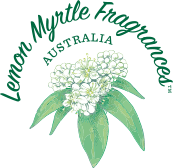What's so special about Lemon Myrtle?
Lemon Myrtle is noteworthy for several reasons;
- It contains the highest purity of citral (making it more lemony than lemons🍋) of any citrus which makes it remarkably suitable for use as a tea, herb and spice in culinary worlds - it adds strong citrus tones to both savoury and sweet dishes without adding the acidic tones lemon contains.
- Additionally, and most importantly as our First Nations People discovered, Lemon Myrtle contains properties akin to a superfood – making it an essential ingredient for good health – either when consuming it as food or drink, its application to the skin via personal care products and when used as a cleaning agent.
What are the health benefits of Lemon Myrtle?
From the Australian Government’s own research (Rural Industries R&D Corporation):
“Lemon myrtle is exceptionally rich in calcium and high in antioxidants, lutein, vitamin E, zinc and magnesium. Scientists believe these minerals are required for synthesis and self-repair of human DNA.
The essential oil is used as an ingredient in cosmetics and personal care items such as soaps, creams, toothpaste and shampoo and conditioners. Lemon myrtle has also been used for many years as a therapeutic aromatherapy product for oil burners or as a misting spray.
Lemon myrtle has antimicrobial and antifungal properties that are superior to those of the popular tea tree oil. As a result, it has potential as a natural food preservative; as an antiseptic, surface disinfectant.”
Here are 5 amazing benefits of Lemon Myrtle:
- Lemon Myrtle is Antimicrobial
- Lemon Myrtle is Antibacterial ~ The very properties which make Lemon Myrtle antimicrobial also make it antibacterial – important in the prevention and treatment of bacterial infections. Applied topically or ingested as a tea, Lemon Myrtle can aid recovery from infections. A Lemon Myrtle toothpaste followed by a Lemon Myrtle Mouthwash is great for assisting cuts in the mouth, geographical tongue and other issues within the mouth. Lemon Myrtle Deodorant is particularly useful because it kills the bacteria in the armpits, feet, and under breasts and it is the bacteria which causes the odour. Kill the bacteria, kill the odour.
- Lemon Myrtle is Antiseptic ~ Antiseptics are bacteria fighters on surfaces – so the surface of the skin and non-living surfaces like benchtops and food preparation areas. Lemon Myrtle Oil added to personal care products and infusions using Lemon Myrtle Tea are the most common way Lemon Myrtle is used as an antiseptic. Relieve a sore throat by gargling a cool Lemon Myrtle Tea. Lemon Myrtle also acts an antiseptic when added to household cleaning products and hand and surface sanitisers.
- Lemon Myrtle is Antifungal ~ Used to kill or prevent the growth of fungi, Lemon Myrtle is a powerful antifungal agent and used to treat symptoms of athlete’s foot, nail infections, ringworms. Applied as a spray or cream or by adding Lemon Myrtle Oil to a foot bath. It is also practical to use Lemon Myrtle in high humidity areas like kitchens and bathrooms to assist in keeping mould spores under control.
2. Lemon Myrtle is high in Antioxidants
Antioxidants are found in foods and produced by the body and help to defend cells from damage to DNA and other cell structures caused by potentially harmful molecules known as free radicals, which build up and cause oxidative stress. Oxidative stress increases the risk of heart disease, cancers, Type 2 Diabetes, and many other chronic diseases. Antioxidants restrain the oxidisation process in the body thereby helping to protect cells. Lemon Myrtle is one of those most famous for high antioxidant content and can be consumed by drinking Lemon Myrtle Tea or try blending it with Green Tea - another tea high in antioxidants.
3. Lemon Myrtle is Anti-Inflammatory
Antioxidants have Anti-inflammatory benefits and given Lemon Myrtle is high in antioxidants, its anti-inflammatory benefits are also important. One of the oldest known properties of Lemon Myrtle is that it is anti-inflammatory and therefore frequently used in the treatment of congestion and reduction of mucus. An inhalation steam bowl with a drop of Lemon Myrtle Oil helps to break up and produce phlegm in respiratory conditions. By helping to reduce inflammation, Lemon Myrtle can be used to help with light pain and discomfort caused by inflammation – customers have even advised they have been able to reduce their use of painkillers and steroids.
4. Lemon Myrtle is very high in Vitamin C
The concentration and purity of citral in the Lemon Myrtle leaf and Essential Oil translate into high levels of Vitamin C - essential for the repair of body tissue, and the production of enzymes to aid the immune system and keep it functioning. Additionally, Vitamin C aids the body’s absorption of iron which helps with healing specifically muscle, and tissue regrowth.
5. Lemon Myrtle is rich in many other nutrients important for overall health
- Reduces oxidative stress – protecting cell damage
- Gene expression
- Enzymatic reactions
- Immune function
- Protein synthesis
- DNA synthesis
- Wound healing
- Growth and development
- Energy creation
- Protein formation
- Gene maintenance
- Muscle movements
- Regulation of the nervous system
Let us know how YOU benefit from Lemon Myrtle! Join the conversation over on our socials!

